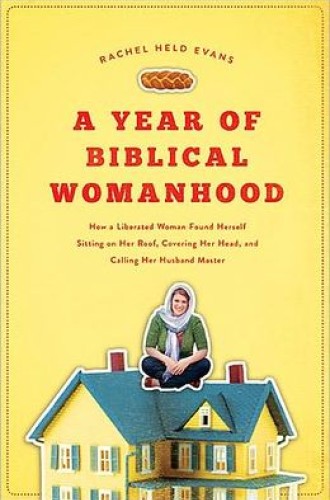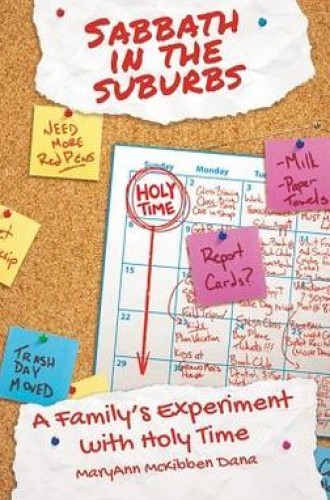A Year of Biblical Womanhood and Sabbath in the Suburbs
In a guinea pig memoir, the intrepid narrator tries on a practice for a period of time, often a year, in the hope that the project will lead to personal or prophetic insight, renewed hope for the future—and a book deal. Think Julie and Julia, The Happiness Project and the aptly named Guinea Pig Diaries, by professional guinea pig and Esquire staff writer A. J. Jacobs. Jacobs had a big hit in 2007 with The Year of Living Biblically, in which he attempted to follow a lengthy list of biblical commandments as literally as possible. And now popular evangelical blogger Rachel Held Evans has written a knockoff of Jacobs’s Year. In A Year of Biblical Womanhood, she takes aim at the inconsistencies of conservative evangelical culture and its prescriptions for the lives of “godly women.”
Evans’s book was born out of her consternation with the expectations of evangelical culture, which made her childless marriage seem incomplete and her career a useless diversion from the biblical roles she was supposed to be pursuing. She thought that she’d managed to avoid internalizing too much of the complementarian philosophy because her mother had submitted to her dad only once, in 1977, and because she and her husband had slipped into an egalitarian partnership—against their own expectations. So Evans was surprised to see her educated, liberal friends quitting their jobs to raise their kids as at-home moms and to live more fully into “biblical” marriage and domesticity.
A Year of Biblical Womanhood may not have reached much past the readership of its author’s popular blog if it hadn’t been for a brief skirmish between Evans and her publisher over a flippant, nonanatomical use of the word vagina and LifeWay bookstores’ subsequent refusal to carry her book. Slate picked up the story, and Evans was featured on Oprah.com and appeared on The View. Evans stoked the fires by writing about her frustration with the frequently unstated norms of evangelical Christian publishing, suggesting that these norms are applied differently to female than to male authors. Mark Driscoll, she points out, uses colorful vocabulary in his book Real Marriage and has been widely acclaimed for his candor.






